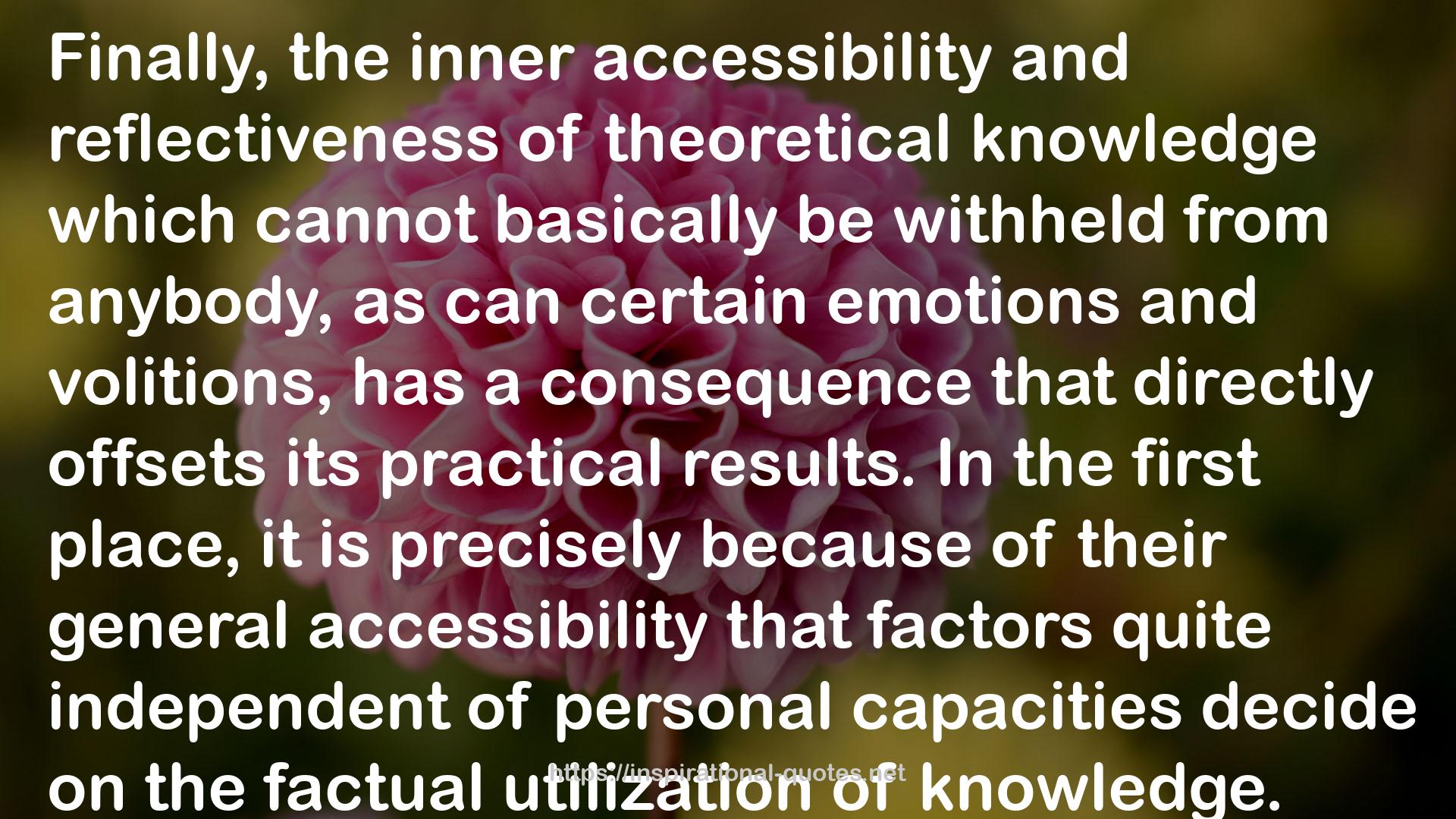" Finally, the inner accessibility and reflectiveness of theoretical knowledge which cannot basically be withheld from anybody, as can certain emotions and volitions, has a consequence that directly offsets its practical results. In the first place, it is precisely because of their general accessibility that factors quite independent of personal capacities decide on the factual utilization of knowledge. This leads to the enormous preponderance of the most unintelligent 'educated' person over the cleverest proletarian. The apparent equality with which educational materials are available to everyone interested in them is, in reality, a sheer mockery. The same is true of the other freedoms accorded by the liberal doctrines which, though they certainly do not hamper the individual from gaining goods of any kind, do however disregard the fact that only those already privileged in some way or another have the possibility of acquiring them. For just as the substance of education - in spite of, or because of it general availability - can ultimately be acquired only through individual activity, so it gives rise to the most intangible and thus the most unassailable aristocracy, to a distinction between high and low which can be abolished neither (as can socioeconomic differences) by a decree or a revolution. Thus it was appropriate for Jesus to say to the rich youth: 'Give away your goods to the poor', but not for him to say: 'Give your education to the underprivileged'. There is no advantage that appears to those in inferior positions to be so despised, and before which they feel so deprived and helpless, as the advantage of education. For this reason, attempts to achieve practical equality very often and in so many variations scorn intellectual education. This is true of Buddha, the Cynics, certain currents in Christianity, down to Robespierre's 'nous n'avons pas besoin de savants'. In speech and writing - which, viewed abstractly, are a manifestation of its communal nature - makes possible its accumulation, and, especially, its concentration so that, in this respect, the gulf between high and low is persistently widened. The intellectually gifted or the materially independent person will have all the more chances for standing out from the masses the larger and more concentrated are the available educational materials. Just as the proletarian today has many comforts and cultural enjoyments that were formerly denied to him, while at the same time - particularly if we look back over several centuries and millennia - the gulf between his way of life and that of the higher strata has certainly become much deeper, so, similarly, the rise in the general level of knowledge as a whole does not by any means bring about a general levelling, but rather its opposite. "
― Georg Simmel , The Philosophy of Money
